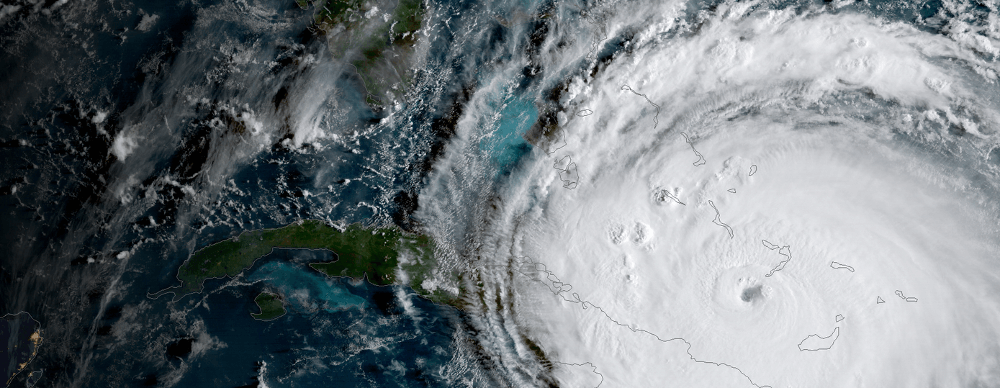 The eye of Hurricane Irma passing the eastern end of Cuba at about 8:00 am (eastern) on September 8, 2017, as captured by the NOAA GOES-16 infrared satellite. Source: NOAA/NASA GOES Project, 2017.
The eye of Hurricane Irma passing the eastern end of Cuba at about 8:00 am (eastern) on September 8, 2017, as captured by the NOAA GOES-16 infrared satellite. Source: NOAA/NASA GOES Project, 2017.
By Lori Peek
Catastrophic. Historic. Unprecedented. Unbelievable.
These are just a few of the words now regularly used by the media when attempting to characterize disasters that seem beyond description.
Every year, hurricanes, floods, tornadoes, wildfires, and other environmental extremes destroy critical infrastructure and cost taxpayers billions of dollars. They kill, injure, and displace people, especially the most vulnerable among us. But while recent disasters have shattered historical records, in many ways, they are not without precedent.
Hazards and disaster researchers have consistently and systematically studied the causes and consequences of such events for decades. This research community has amassed an enormous amount of knowledge on everything from the root causes of disaster to the long-term ramifications of unjust recovery policies.
Make no mistake, with each fresh catastrophe comes new questions and new opportunities for learning. There are, however, also important commonalities across disasters that have been documented time and again.
These lessons from past disasters matter and we must make them widely available. In this era of the mega-disaster, the stakes are too high for findings to be inaccessible behind journal paywalls. The decisions that are being made are too consequential for evidence-based insights to be sidelined. Facts matter. Research counts.
The Natural Hazards Center is committed to uplifting the work of others and bringing it to new audiences. To that end, we launched the Research Counts initiative in 2017. Since then, this series has served as an important platform for hazards and disaster researchers to share enduring lessons as well as cutting-edge research findings. It has also provided a forum for raising new questions worthy of exploration and identifying urgent challenges in need of solutions. The pieces in the series are brief and intended for broad consumption. We want to work with our community to get this knowledge into the hands of those who need it most.
Research Counts includes numerous original briefs from experts in a variety of disciplines, ranging from anthropology to engineering. These scholars have lent their voices to help us understand catastrophes that disrupt lives and livelihoods and place them in a broader context. Hazards and disaster researchers have long shown a deep commitment to sharing their knowledge with practitioners, policymakers, and the public to help reduce risk and to ameliorate the suffering caused when disaster strikes. This series is a testament to that.
As more people and places are affected by disaster with each passing year, it is crucial that our research community responds by sharing the lessons learned from previous and ongoing work with a larger public audience. Thank you to those who contributed to this series and thank you to those who take the time to read these pieces and move them into action.
Please take care of yourself and others.
Lori Peek, Director Natural Hazards Center
The original version of this article introduced the Research Counts series launch on September 7, 2017. This updated version recognizes the series growth and changing disaster contexts.
Lori Peek is director of the Natural Hazards Center and professor in the Department of Sociology at the University of Colorado Boulder. She is principal investigator of the National Science Foundation-funded CONVERGE initiative and author of Behind the Backlash: Muslim Americans after 9/11, co-editor of Displaced: Life in the Katrina Diaspora, and co-author of Children of Katrina. She also is a contributing author to FEMA P-1000 Safer, Stronger, Smarter: A Guide to Improving School Natural Hazard Safety. She earned her PhD in Sociology from the University of Colorado Boulder.